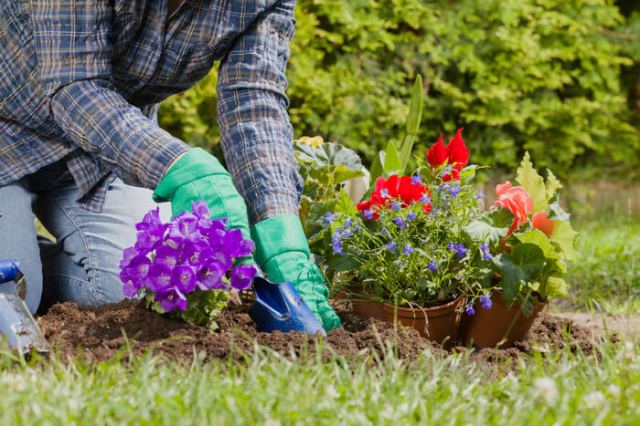Gardening is often perceived as a quaint hobby, a leisurely pursuit that many indulge in during weekends or sunny afternoons. However, the question of how much time one should invest in this green endeavor is pivotal, especially considering its numerous benefits ranging from mental health to environmental sustainability. This article sets out to challenge conventional notions surrounding gardening frequency and duration, urging the reader to recalibrate their perspective on time spent nurturing the soil and flora.
In exploring this multifaceted topic, we must grapple with individual circumstances, personal motivations, and empirical evidence regarding the optimal time to spend gardening each day. As a practice that engages both our physical bodies and psychological states, gardening can be as integral to one’s lifestyle as other daily routines such as exercise or creative pursuits.
Before delving into time allocation, it is critical to understand why gardening merits daily attention. The act of gardening encompasses elements of mindfulness, physical exertion, and engagement with nature, all of which converge to yield a myriad of benefits.
The Psychological Benefits of Routine Gardening
First and foremost, engaging with plants can significantly contribute to psychological well-being. A consistent gardening schedule encourages a form of mindfulness—an awareness of the present moment. Numerous studies suggest that spending time in nature can lead to decreased stress levels, lower anxiety, and improved mood (Kaplan, 1995). When one immerses oneself in the nurturing of plants, it fosters an intrinsic connection to the environment, often resulting in a sense of accomplishment and serenity.
Moreover, daily gardening can act as a form of therapy. Horticultural therapy, specifically, has become a recognized practice in mental health treatment, where engaging in this activity improves cognitive function, alleviates mood disorders, and enhances overall mental resilience (Groenewegen et al., 2006). Thus, a structured approach to gardening time can provide substantial mental health dividends.
Furthermore, the daily act of gardening propels individuals toward an active lifestyle. This is particularly salient in an age plagued by sedentary habits exacerbated by technological advancements. Gardening, a physically demanding activity, can replace a routine gym outing. The act of digging, planting, weeding, and harvesting can contribute to cardiovascular health and physical fitness. Engaging in gardening activities for at least 30 minutes to an hour daily can complement recommended physical activity levels, benefitting heart health and metabolic function (American Heart Association, 2021).
Efficient Time Management for Optimal Gardening
Time allocation is often relegated to the back burner in discussions surrounding gardening, overshadowed by the romanticized notion that more time equates to better gardens. However, efficiency in time management is key. Understanding how to maximize productivity within limited time frames is crucial for the modern gardener.
Establishing a routine that incorporates gardening into the daily schedule is essential. For example, block scheduling can be advantageous; dedicate 30 minutes each morning to attend to plants, followed by another 30 minutes in the evening for maintenance tasks. This segmentation not only prevents burnout but distributes the labor across the day. For novice gardeners, starting with small, achievable tasks can help prevent feelings of overwhelm and foster confidence.
Additionally, consider the seasons and plant types when establishing a timeline for gardening activities. Different flora require varied levels of attention, and understanding these nuances will allow for more strategic planning. For instance, during planting season, daily engagement might be necessary, whereas, in the winter months, a reduced schedule may suffice. By tailoring time commitments to the needs of the garden, one cultivates success without succumbing to aspirations of perfection.
Gardening as a Daily Act of Environmental Stewardship
Investing time in gardening transcends personal benefit; it also represents a commitment to environmental stewardship and sustainability. As contemporary society grapples with alarming rates of ecological degradation, fostering a green thumb can contribute to biodiversity and ecological health.
Planting native flora not only beautifies a space but supports local ecosystems, providing habitats for pollinators and other wildlife. Allocating daily time for gardening activities can correspondingly enhance biodiversity in one’s immediate environment. Recognizing that every seed sown is a vote for a healthier planet can imbue gardening with a profound sense of purpose. Thus, even short daily gardening sessions can have rippling effects beyond the immediate garden plot.
Moreover, conscientious gardening promotes sustainable practices, such as organic pest management and water conservation. Dedicating time to learn about permaculture principles or composting can transform an ordinary gardening practice into an educational journey, enabling one to contribute positively to environmental efforts. In an ever-urbanizing world, cultivating a home garden serves as a bastion of ecological integrity and a method for reducing one’s carbon footprint.
Balancing Personal Preferences and Gardening Commitment
Ultimately, the ideal amount of time to spend gardening each day often hinges on personal preferences and circumstances. While some may relish the opportunity to embrace long, labor-intensive sessions in their gardens, others might thrive with shorter durations. Functionally, one could argue that even 15 minutes of focused gardening can yield substantial results. Choosing to engage in gardening should not feel burdensome; it should resonate with joy and fulfillment.
Creating a realistic gardening schedule entails contemplating various factors: work commitments, family obligations, and personal interests must all be factored into a daily routine. Striking a balance between gardening time and other commitments can alleviate the stress often tied to unrealistic expectations. Rather than viewing gardening as a chore to be completed, reframe it as a cherished segment of the day—one that deserves to be prioritized.
Moreover, integrating gardening with social relations can enrich the experience. Community gardening initiatives, for instance, allow for shared responsibility and collaborative learning, fostering bonds while emphasizing the therapeutic aspects of gardening. Thus, one might consider the time spent gardening not just in solitary toil, but as community engagement, weaving social connections through shared green spaces. Investing gardening time into community efforts amplifies both personal and collective benefits, making the endeavor all the more worthwhile.
In conclusion, how much time one should spend gardening each day is not a one-size-fits-all proposition. Whether it is 15 minutes or several hours, what matters is consistency, mindfulness, and the intentions behind each gardening endeavor. Individuals are encouraged to reflect on their motivations for gardening and to allocate time that resonates with their lifestyle and values. The benefits are substantial and transcend the garden gate, impacting mental health, physical well-being, and environmental sustainability. Therefore, it is high time to challenge oneself: how will you invest your time in nurturing both your garden and your spirit?









Leave a Comment